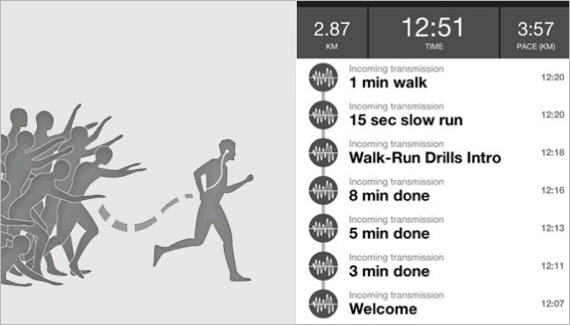Gamification programs engage healthcare consumers
Interactive games promote diet, exercise and preventive care
Hospitals and physician practices are starting to use social media to incentivize patients to lead healthier lifestyles through integrated online and mobile games. This approach to healthcare is called gamification, and is picking up in popularity among patients and organizations. Rather than telling people that they should exercise or eat more vegetables, gamification gives healthy choices a purpose and more immediate gratification.
The idea of integrating gamification into the marketing plan for a hospital or physician group may seem intimidating, but it doesn’t need to be complex to be effective. It is most effective when the game or program taps into what motivates patients and is available on the most convenient channels, such as social media and mobile apps.

Five successful health-related gaming programs:
Zombies, RUN! Although the prospect of a zombie apocalypse is somewhat terrifying, this app uses it as motivation to keep running. In this audio app, runners receive commands through their headphones to collect supplies and outrun zombies. Good for use outside or on the treadmill, it records your distance, time, pace and calories burned during each mission and can make running exciting again.
Nike+: This app allows people to track their everyday activities, such as running, yoga, and hiking, set goals, and compete with friends. Nike+ also shares training tips from coaches, and rewards your successes with badges and ribbons that you can then share on social networks with your friends.
GE #GetFit Campaign: GE Healthcare’s gamification/social media hybrid campaign promoted cancer awareness and prevention. To participate, people shared their healthy choices and activities on Facebook, Twitter or Weibo including the #GetFit hashtag. For each post on a social network that included #GetFit, people received 10 points. People also created teams and competed against others around the world.
CDPHP Life Points: An online rewards program allowed members to create an online profile, take a personal health assessment, and then log points for every healthy choice they make. For example, members can earn points for joining a gym, getting an annual physical, logging the number of steps they take, or joining an adult intramural sports team. Once points have accumulated, members can cash them in for up to $365 a year in gift cards for shopping, travel, dining, or entertainment.
Baby Blocks Mobile App: UnitedHealth created this mobile app to encourage women on Medicaid to attend all of their prenatal checkups. Each time a woman goes to one of her checkups, she unlocks a block. When she unlocks certain blocks, she receives gift cards for things like baby clothing and maternity clothing. UnitedHealth said that in 2012, 2,296 women used the app.
